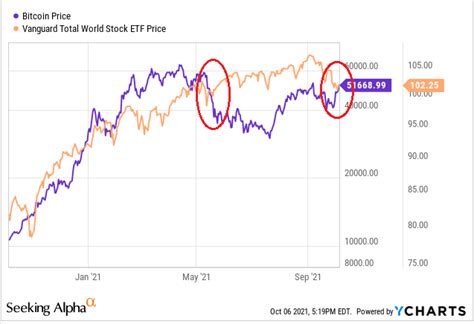Decoding Bitcoin Stock: Understanding the Relationship Between Bitcoin and the Stock Market

`markdown
Preview: This article delves into the nuanced relationship between Bitcoin stock and the traditional stock market. We'll explore how Bitcoin's performance can influence certain stocks, and conversely, how market trends can impact the cryptocurrency's value. Understand the dynamics at play and how to navigate this evolving financial landscape.
What is Bitcoin Stock?
While Bitcoin itself is a cryptocurrency, the term "Bitcoin stock" is often used loosely to refer to stocks of companies involved in the Bitcoin ecosystem. These companies might mine Bitcoin, provide Bitcoin-related financial services, or hold significant Bitcoin assets. The performance of these stocks can be influenced by the price movements of Bitcoin.
Why the Confusion with "Bitcoin Stock"?
It's important to clarify that Bitcoin isn't a stock. It's a digital currency. There is no actual Bitcoin stock available to buy and sell on exchanges in the traditional sense. When people use the term "Bitcoin stock," they are generally referring to shares of companies that are associated with Bitcoin.
Understanding the Link Between Bitcoin and Specific Stocks
The value of companies associated with Bitcoin is often correlated with Bitcoin's price.
- Mining Companies: Companies like Riot Platforms (RIOT) or Marathon Digital Holdings (MARA) are heavily involved in Bitcoin mining. Their profitability is directly tied to the price of Bitcoin because they earn Bitcoin as a reward for mining new blocks. A rising Bitcoin price often leads to increased revenue and higher stock valuations for these miners.
- Financial Service Providers: Companies like Coinbase (COIN) generate revenue from trading fees and other Bitcoin-related services. Increased Bitcoin trading activity, driven by price fluctuations, can boost their revenue.
- Technology Companies with Bitcoin Holdings: Some companies, like MicroStrategy (MSTR), have invested heavily in Bitcoin. Their stock price can be significantly impacted by changes in Bitcoin's value. MicroStrategy's strategy of holding Bitcoin has made its stock almost a proxy for Bitcoin itself.
- Regulatory Developments: Government regulations regarding Bitcoin and cryptocurrency can have a major impact. Positive regulatory news generally boosts prices, while negative news can trigger sell-offs.
- Market Sentiment: The overall sentiment towards Bitcoin plays a crucial role. Positive news, such as institutional adoption or increased awareness, can drive prices higher.
- Macroeconomic Conditions: Inflation, interest rates, and other macroeconomic factors can influence investor sentiment towards Bitcoin as an alternative asset. High inflation, for example, might lead investors to seek refuge in Bitcoin.
- Technological Advancements: Improvements in blockchain technology, scalability solutions, and security can positively impact Bitcoin's value and adoption.
- Bitcoin Halving: The Bitcoin halving event, which occurs approximately every four years, reduces the reward for mining new blocks. This can create supply scarcity and potentially drive prices higher.
- Rewards: Exposure to the cryptocurrency market without directly holding Bitcoin. Potential for significant capital appreciation if Bitcoin prices rise.
- Risks: High volatility. Dependence on Bitcoin's price fluctuations. Regulatory uncertainty. Company-specific risks.
- Stay Informed: Keep up-to-date on the latest Bitcoin news, regulatory developments, and market trends.
- Diversify Your Portfolio: Don't put all your eggs in one basket. Diversify your investments across different asset classes and sectors.
- Manage Risk: Understand your risk tolerance and set stop-loss orders to limit potential losses.
- Consider Long-Term Investing: Bitcoin and Bitcoin stocks can be volatile in the short term. Consider a long-term investment horizon.
- Consult a Financial Advisor: If you're unsure about investing in Bitcoin or Bitcoin stocks, seek advice from a qualified financial advisor.
Factors Influencing Bitcoin and Related Stocks
Several factors influence both Bitcoin's price and the associated stocks:
Investing in Bitcoin-Related Stocks: Risks and Rewards
Investing in companies associated with Bitcoin can be risky due to Bitcoin's inherent volatility. However, it also offers the potential for high returns.
Due Diligence is Key
Before investing in any Bitcoin stock, it's essential to conduct thorough research. Understand the company's business model, financial performance, and exposure to Bitcoin. Consider your risk tolerance and investment objectives before making any decisions.
Navigating the Bitcoin and Stock Market Intersection
Here are some tips for navigating the complex relationship between Bitcoin and the stock market:
Conclusion
The intersection of Bitcoin and the stock market presents both opportunities and challenges for investors. While there isn't a direct "Bitcoin stock," companies closely tied to Bitcoin's ecosystem offer indirect exposure to the cryptocurrency market. Understanding the factors that influence both Bitcoin and these associated stocks is crucial for making informed investment decisions. Remember to conduct thorough research, manage risk, and consider your investment goals before investing.
Frequently Asked Questions (FAQ)
Q: What is meant by "Bitcoin stock?"
A: The term "Bitcoin stock" usually refers to the stock of companies that operate within the Bitcoin ecosystem, such as miners, financial service providers, or companies that hold significant Bitcoin reserves. It's not a stock of Bitcoin itself.
Q: Are Bitcoin stocks a good investment?
A: Whether Bitcoin stocks are a good investment depends on your risk tolerance, investment goals, and understanding of the cryptocurrency market. They offer potential for high returns but also come with significant risks.
Q: How does the price of Bitcoin affect Bitcoin-related stocks?
A: Generally, when the price of Bitcoin increases, the stock prices of companies heavily involved in Bitcoin, such as mining companies and those with large Bitcoin holdings, tend to rise as well. Conversely, a decline in Bitcoin's price can negatively impact these stocks.
Q: What are some examples of Bitcoin stocks?
A: Examples of companies that are sometimes referred to as "Bitcoin stocks" include:
* Coinbase (COIN)
* MicroStrategy (MSTR)
* Riot Platforms (RIOT)
* Marathon Digital Holdings (MARA)
Q: What are the risks associated with investing in Bitcoin-related stocks?
A: The risks include high volatility, regulatory uncertainty, dependence on Bitcoin's price fluctuations, and company-specific risks related to the individual company's operations and management.
Q: Where can I buy Bitcoin stocks?
A: Bitcoin stocks, meaning the stocks of companies associated with Bitcoin, can be purchased through traditional brokerage accounts.
`





